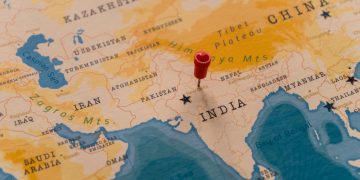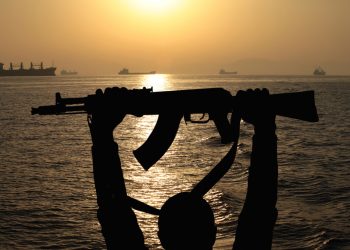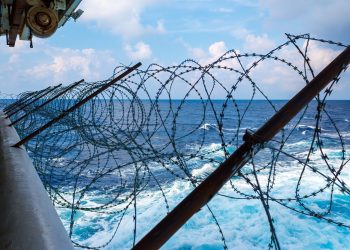No longer are Somali pirates untouchable in their safe haven
 The hijacking of a Greek-owned oil tanker in the Arabian Sea last weekend did more than evoke the usual protestations by naval forces in the area that they could do nothing for fear of jeopardising the crew’s safety. This time it triggered a helicopter-led nighttime assault on Somali pirate sanctuaries during which their supply centres came under fierce air attack and boats were destroyed. Although the raid did not secure the release of the 15-man crew of the MV Smyrni, the ship or its 135,000 tonnes of crude oil, it did set a welcome precedent.
The hijacking of a Greek-owned oil tanker in the Arabian Sea last weekend did more than evoke the usual protestations by naval forces in the area that they could do nothing for fear of jeopardising the crew’s safety. This time it triggered a helicopter-led nighttime assault on Somali pirate sanctuaries during which their supply centres came under fierce air attack and boats were destroyed. Although the raid did not secure the release of the 15-man crew of the MV Smyrni, the ship or its 135,000 tonnes of crude oil, it did set a welcome precedent.
No longer are Somali pirates untouchable in their safe havens, where they felt able to hide behind the 18 ships and 300 crew members they hold hostage. The realisation has finally dawned that the force used by the pirates against merchant shipping, including several Thai vessels, has to be met with an equal or greater force if the threat they pose is to be contained.
This air assault was no unilateral strike. The European Union Naval Force Somalia says this and future operations have the support of the United Nations and the Transitional Federal Government of Somalia, which is the internationally recognised, if limited in scope, government of that failed state. The hijacking of the Smyrni was one of four attacks in the Arabian Sea this month. In one assault a pirate gang fired a rocket-propelled grenade at a crude oil tanker. Even so, the hijack success rate has dropped sharply in recent months, due in part to more merchant ships turning to armed security guards, razor wire and water cannons for protection.
The situation in the Gulf region remains volatile. The pirates have shown no qualms about murdering innocent crew members, including the four-person crew of an American leisure yacht, killed last year in full view of four US naval ships. Now, with the widening of operations, elements of the protective naval flotilla trying to safeguard thousands of kilometres of ocean finally have the right to strike back.
They should no longer have to repeat the niceties practised by a British frigate last year which captured a group of pirates, seized their craft and then let them go after free medical checks, some halal food, cigarettes, nicotine patches courtesy of the British taxpayers and a polite warning. That so-called “catch and release policy” sent the wrong message. Air attacks on their home ports do not. It should also be illegal under international law for anyone, including insurance firms, to pay ransoms for pirated vessels. Piracy is a business and if there were no profits it would eventually stop.
Some of the sea bandits claim to be former fishermen, whose livelihoods were hurt by foreign ships illegally fishing and dumping toxic waste in Somali waters. There is some truth in this. But it does not explain why they attack ships carrying the humanitarian food aid their country relies upon or the involvement of warlords and the advance sale of shares in targeted seizures of tankers and bulk carriers. That is organised crime.
During her trip this week to Bahrain and Qatar, Prime Minister Yingluck Shinawatra scheduled a teleconference with 16 Thai naval officers based aboard a British Royal Fleet Auxiliary ship which is protecting commercial shipping off the Seychelles. Supreme Commander Gen Tanasak Patimapakorn and navy chief Adm Surasak Rounroengrom are due to meet the Thai officers aboard the British ship tomorrow.
Their recommendations to the cabinet will pave the way for continued participation by the Thai military in the Combined Task Forces fighting piracy in the Gulf of Aden and Somali coast. They should expect to be busy in the months ahead.
Source: Bangkok Post
































































